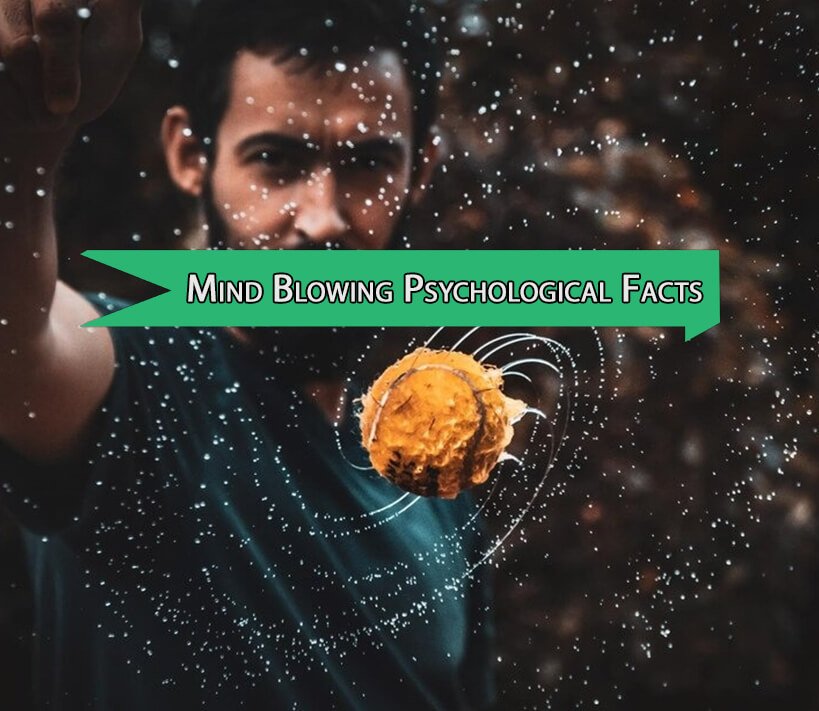Have you ever walked into a room only to feel an immediate connection or disconnection with the people inside, even though you have not exchanged a word? Or perhaps you have found yourself suddenly overwhelmed by a memory triggered by the scent of freshly baked cookies or the sound of a favorite song? These moments reveal something fascinating about the human brain and its complexity and subtle mechanisms. The brain influences actions and perceptions in ways that seem magical. However, the more we learn about how the human brain works, the more we appreciate the intricacies that help us understand who we are. Ready to dive into some mind-blowing psychological Facts? Here are a few insights that will change how you see yourself and others.
1. Humans are wired to remember negative experiences more vividly than positive ones. This is known as negativity bias, and it is rooted in evolution. Our ancestors had to focus on potential threats to survive, so the brain became hardwired to prioritize harmful events. As a result, negative emotions and experiences are more likely to stick in your mind.
2. The human brain has the incredible ability to store unlimited information.
3. Our memory is not as reliable as we think. The brain can create false memories, sometimes making us believe in events that never actually happened.
4. The brain mirror neurons allow us to experience empathy by mimicking the emotions or actions of others, helping us connect to them on a deeper level.
5. The average adult human brain weighs around three pounds, yet it holds the secrets to our thoughts, memories, and emotions.
6. Just five minutes without oxygen can cause irreversible brain damage, highlighting how vital a steady oxygen supply is for cognitive function.
7. In a surprising twist, sweating can temporarily shrink the brain, showing how connected our bodies are to our mental functions.
8. Laughter is not just about humor. It is a powerful social tool. Laughing with others strengthens social bonds and builds a sense of connection. The brain releases endorphins when we laugh, which makes us feel good and more bonded to others. Laughter is contagious because of mirror neurons, which make us mimic the actions and emotions of those around us.
9. Color visual stimuli profoundly impact our mood and behavior. The red color increases heart rate and stimulates energy, while the blue color induces a calming effect. This is why red is often used in advertisements to grab attention, while blue is used in hospitals to create a peaceful environment, influencing the psychoaesthetic of the space.
10. Humans are naturally attuned to faces. From birth, we begin recognizing faces and interpreting emotional cues. The brain is skilled at detecting faces even in things where no face exists, such as in clouds, rocks, or everyday objects, a phenomenon known as pareidolia, which also shapes the psychoaura we experience in our surroundings.
11. This helps us make sense of complex situations but can also lead us to see connections that do not exist. This is why you might see a face in a cloud or hear hidden messages in a song when played backward. The brain need to seek patterns can be both helpful and misleading.
12. Your emotional state significantly influences your perception of time. Positive emotions tend to make time feel like it is moving quickly, while negative emotions can make it feel like it is standing still.
13. Humans tend to fear the unknown more than known threats. This instinct is evolutionary, as our ancestors must be cautious about unfamiliar situations that might pose a danger. This fear often manifests in social anxiety, fear of change, or hesitation when faced with new experiences.
14. Listening to music has a profound effect on the human brain. As one of the Mind Blowing Psychological Facts, music activates areas involved in memory, emotions, and movement, showing just how deeply sound influences our mind
15. Humans are often most creative late at night. The brain taps into its fullest potential during the quiet of the evening, boosting creativity and imagination.




